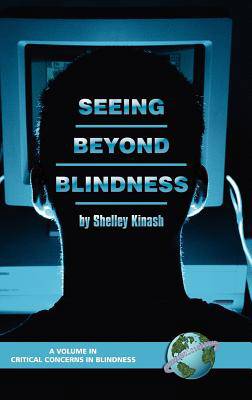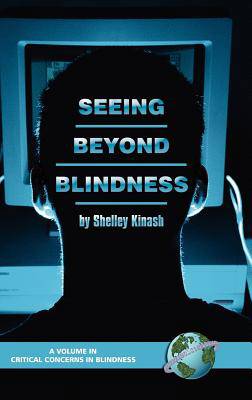
- Afhalen na 1 uur in een winkel met voorraad
- Gratis thuislevering in België vanaf € 30
- Ruim aanbod met 7 miljoen producten
- Afhalen na 1 uur in een winkel met voorraad
- Gratis thuislevering in België vanaf € 30
- Ruim aanbod met 7 miljoen producten
Zoeken
€ 152,45
+ 304 punten
Omschrijving
Inside this book are reflections on the nature of vision and blindness. Further, there are explorations of interpretive research, and presentations of some seminal and contemporary publications in the field of blindness. The other major fodder for conversation with you the reader is an elaborated example of empirical research entitled Blind Online Learners. Each element of this inquiry is explicitly reflected upon as an example of interpretive research. This book is intended for four intersecting groups of readers. If you are a philosopher, closet or sanctioned, then you cannot ponder the nature of being without due consideration for vision, and cannot contemplate the role of seeing in our lives without listening to the stories of those who are blind. The tales within this text are particularly contemporaneous because they are contextualized by the cyber-phenomena of online learning. This segues to the second group of readers, as the described empirical research was originally intended to bring greater depth and breadth of understanding to the field of educational technology, particularly as it intersects with disability studies. There is a paucity of published literature that has inquired into disabled online learners, and this research study responds to that call. Third, this book may be used as a textbook on approaches to interpretive empirical research. It is as close as one may come to a recipe, walking students through a specific example. Because it is situated in actual empirical research, the intention was that it avoid the trap of being prescriptive or formulaic. Finally, the text is intended for readers interested in the field of blindness. The text reviews some of the seminal and contemporary research on blindness, and then presents an elaborated example of what we can and should expect to emerge in the knowledge production industry, changing what it means to be blind.
Specificaties
Betrokkenen
- Auteur(s):
- Uitgeverij:
Inhoud
- Aantal bladzijden:
- 220
- Taal:
- Engels
- Reeks:
Eigenschappen
- Productcode (EAN):
- 9781593115227
- Verschijningsdatum:
- 19/06/2006
- Uitvoering:
- Hardcover
- Formaat:
- Genaaid
- Afmetingen:
- 162 mm x 242 mm
- Gewicht:
- 453 g

Alleen bij Standaard Boekhandel
+ 304 punten op je klantenkaart van Standaard Boekhandel
Beoordelingen
We publiceren alleen reviews die voldoen aan de voorwaarden voor reviews. Bekijk onze voorwaarden voor reviews.











